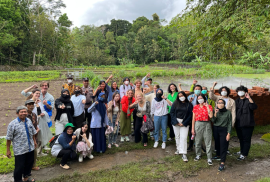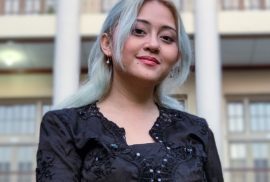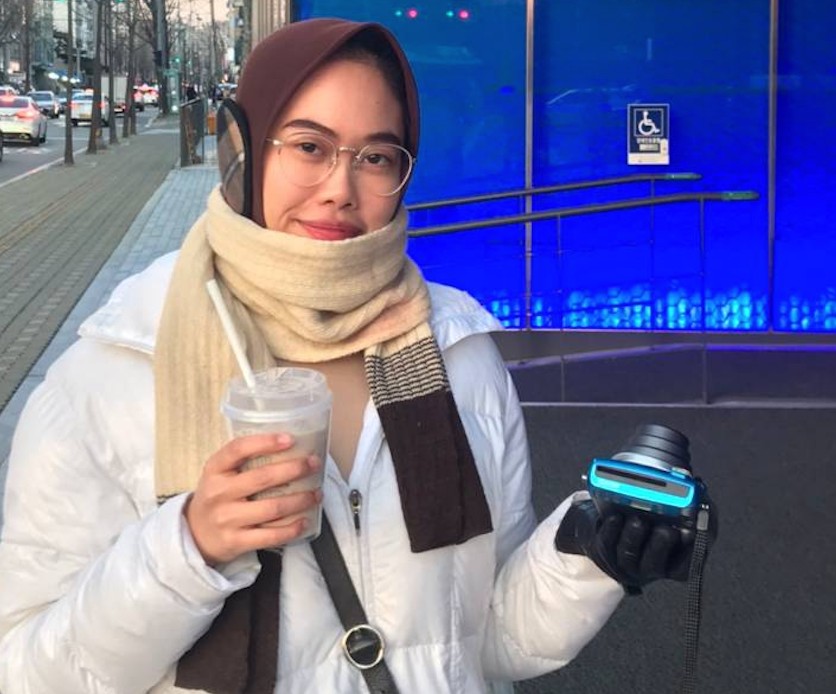On Friday, 21 October, Psychology of Disaster and Crisis class had a field study at Desa Giriasih, Gunung Kidul. It is a community-led innovation in disaster and humanitarian response Ngudi Mulya where an innovation was made in the form of mist irrigation for the farmers there and most of the farmers are elderly. The agenda from the series of activities consist of presentations from the group who made the innovation, named The Ngudi Mulya Group. The innovation was also made as a response to the issue of severe drought during the dry season in Gunung Kidul. During the dry season, the area of Gunung Kidul is lacking a water source which leads to the difficulty of the farmers in accessing water. To obtain water, the farmers have to buy and carry the water from the field which is quite demanding and difficult to conduct since the farmers are mostly elderly. This innovation is integrated with IT through smartphones, the farmers can activate their smartphones and schedule their irrigation period. This is also in accordance with the hope of attracting the interest of young generations in continuing Indonesian agricultural activities.
ugm
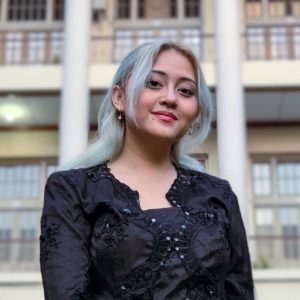 Zachranti Abianca “Abin” Hafsari is a student of IUP batch 2017. Ever since she was a child, she has a particular fondness towards the world of visual arts. She told us that it all started when she was a child, “around the age of kindergarten,” she recalled. During that time, her mother used to have a painting teacher come over to hone her artistry. Being a small child, Abin tried to imitate her, to which her mother noticed and had a mini easel placed beside hers. “I vividly remember the moment when I made my first painting. I was painting alongside my mom, who painted a scenery. I, on the other hand, painted a blue and pink house,” she told us. Her interest was brought to school at that time, making arts and crafts as her favorite subject.
Zachranti Abianca “Abin” Hafsari is a student of IUP batch 2017. Ever since she was a child, she has a particular fondness towards the world of visual arts. She told us that it all started when she was a child, “around the age of kindergarten,” she recalled. During that time, her mother used to have a painting teacher come over to hone her artistry. Being a small child, Abin tried to imitate her, to which her mother noticed and had a mini easel placed beside hers. “I vividly remember the moment when I made my first painting. I was painting alongside my mom, who painted a scenery. I, on the other hand, painted a blue and pink house,” she told us. Her interest was brought to school at that time, making arts and crafts as her favorite subject.
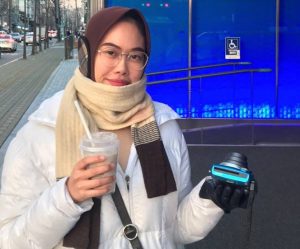
Nadira Sarah Salsabila, or who is more familiar by the name Sarah, is a student from batch 2017 that is keen on two different activities; Reading fiction and volunteering in the humanitarian fields.
Reading is an act of solace and for Sarah, the budding interest towards the activity started when she was as young as nine. Having to deal with the nervousness that comes with having to deal with moving back and forth abroad, young Sarah dealt with this by paying her local library multiple visits where she would sit by the children’s section to read new, unfamiliar books or simply appreciate the drawings of the picture books she could find at her grasp.

